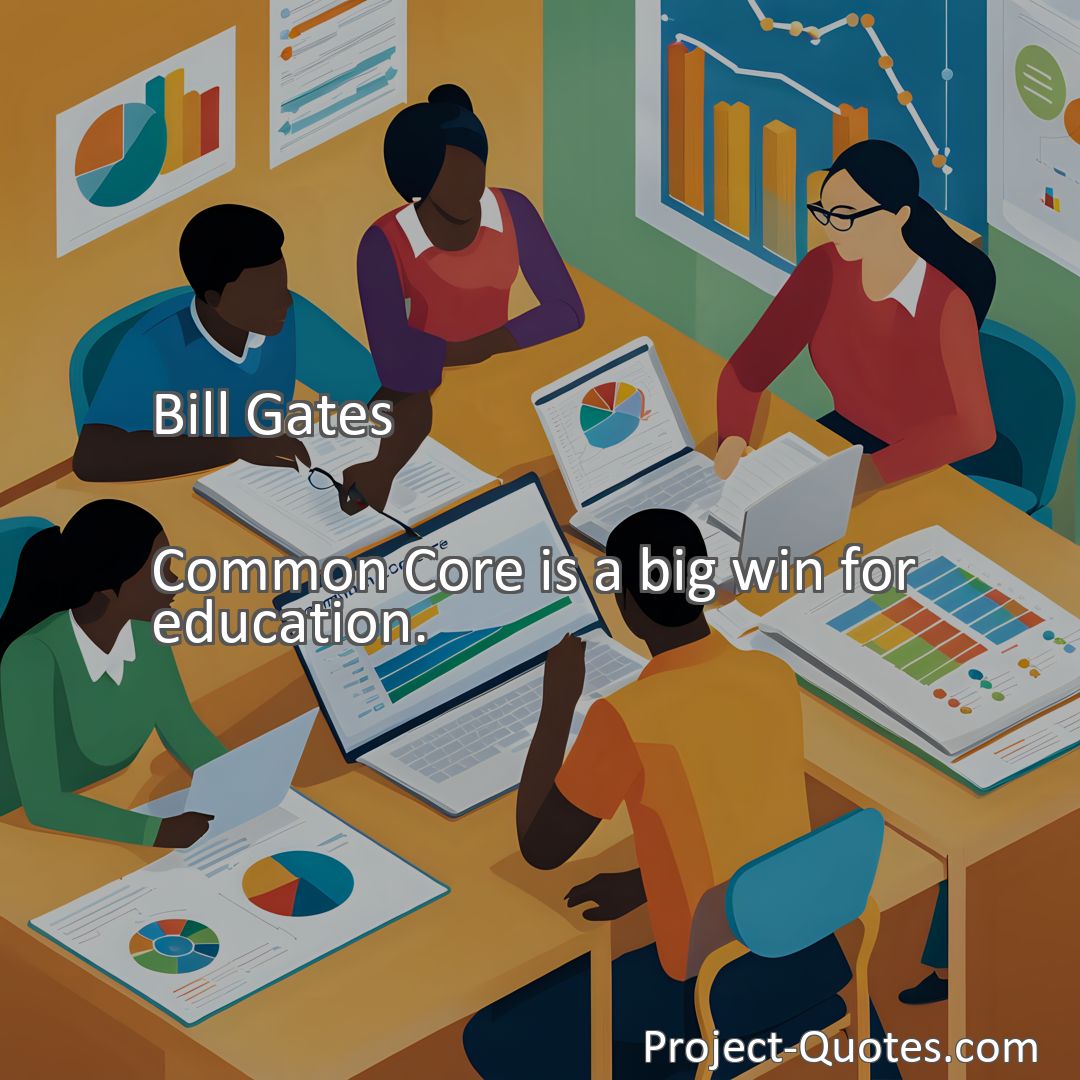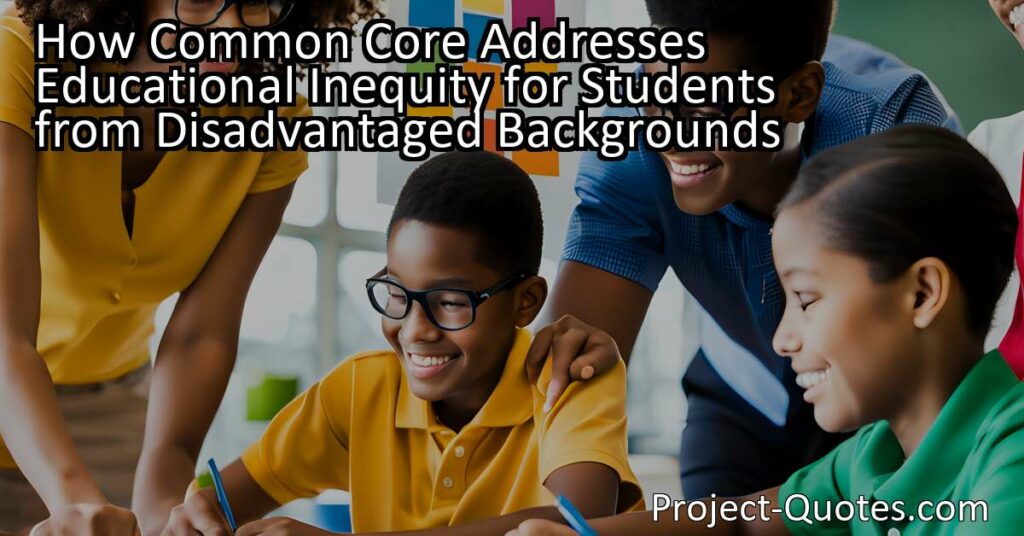Common Core is a big win for education.
Bill Gates
Common Core, an educational initiative, addresses educational inequity for students from disadvantaged backgrounds by establishing consistent expectations and focusing on essential skills. It levels the playing field and ensures that every child, regardless of their socioeconomic background, has an equal chance to receive a high-quality education. By narrowing the achievement gap, Common Core provides opportunities for students to unlock their potential and succeed academically.
Table of Contents
Meaning of Quote – Common Core is a big win for education.
Bill Gates, the philanthropist and co-founder of Microsoft, once remarked, “Common Core is a big win for education.” In today’s increasingly interconnected world, where ideas are shared across borders and technological advancements continue to reshape the way we live, it is crucial to equip students with the skills and knowledge necessary to thrive in the 21st century. Common Core, an educational initiative that sets rigorous academic standards for students across the United States, emerges as a solution to ensuring that all learners are adequately prepared to meet the challenges of tomorrow.
First and foremost, Common Core addresses a fundamental issue in education: consistency. Prior to the implementation of Common Core, educational standards varied significantly from state to state. A student in Mississippi might have been held to completely different expectations than a student in California. This lack of uniformity in standards created a system that was both inequitable and inefficient. Common Core seeks to level the playing field by establishing consistent benchmarks across the country, ensuring that every student has an equal opportunity to succeed academically.
By setting clear expectations for what students should know and be able to do at each grade level, Common Core fosters a cohesive and progressive learning journey. These standards cover key subjects such as English language arts and mathematics, providing a framework that allows educators to design curriculum and lesson plans that build upon and reinforce prior knowledge. For instance, in English language arts, students are guided to engage with complex texts, analyze multiple perspectives, and develop strong writing skills. In mathematics, they are encouraged to think critically, solve real-world problems, and make sense of abstract concepts. By consistently revisiting and building upon these foundational skills, students develop a holistic understanding of the subject matter and are better prepared for future academic pursuits.
Moreover, Common Core encourages the acquisition of essential life skills such as critical thinking and problem-solving. In an era when information is easily accessible, it becomes crucial for students to develop the ability to evaluate, analyze, and apply knowledge effectively. Through rigorous and intellectually challenging standards, Common Core pushes students to move beyond memorization and instead engage in higher-order thinking. By promoting active participation in the learning process, Common Core fosters the development of independent and analytical thinkers who can adapt to an ever-evolving world.
Critics of Common Core often argue that it stifles creativity and limits the autonomy of educators. However, this is a misinterpretation of the initiative’s intent. Common Core does not aim to dictate the specific methods or materials that teachers use in the classroom; rather, it provides a set of overarching standards that can be customized to suit the needs and interests of students. In fact, the flexibility inherent in Common Core allows for greater creativity in lesson planning. Educators are encouraged to design engaging and interactive activities that align with the standards, thus promoting a more dynamic and stimulating learning environment.
Another important aspect of Common Core is its emphasis on college and career readiness. The initiative recognizes that the ultimate goal of education is to prepare students for success beyond the classroom, whether it be pursuing higher education or entering the workforce. By aligning its standards with the skills demanded in the modern job market, Common Core ensures that students are equipped with transferable skills that are applicable across various domains. Communication, collaboration, and critical thinking are just a few of the essential skills that Common Core cultivates, equipping students with a toolkit necessary for success in the 21st century.
Furthermore, Common Core promotes educational equity by narrowing the achievement gap. Students from disadvantaged backgrounds often face additional barriers when it comes to accessing quality education. By establishing consistent expectations and focusing on essential skills, Common Core levels the playing field, enabling all students, regardless of their socioeconomic background, to receive a high-quality education. This eliminates the dependence on zip codes when determining the educational opportunities available to students and ensures that every child has an equal chance to unlock their potential.
While Common Core has faced its fair share of criticism and challenges, it is important to recognize its potential to transform education for the better. By providing a consistent benchmark and fostering the acquisition of essential skills and knowledge, Common Core equips students with the tools they need to excel academically and thrive in an ever-changing world. As we navigate the complexities of the 21st century, it is crucial to embrace educational initiatives that prioritize academic rigor, critical thinking, and equitable access to learning opportunities. Common Core, indeed, emerges as a big win for education.
I hope this quote inspired image brings you hope and peace. Share it with someone who needs it today!


